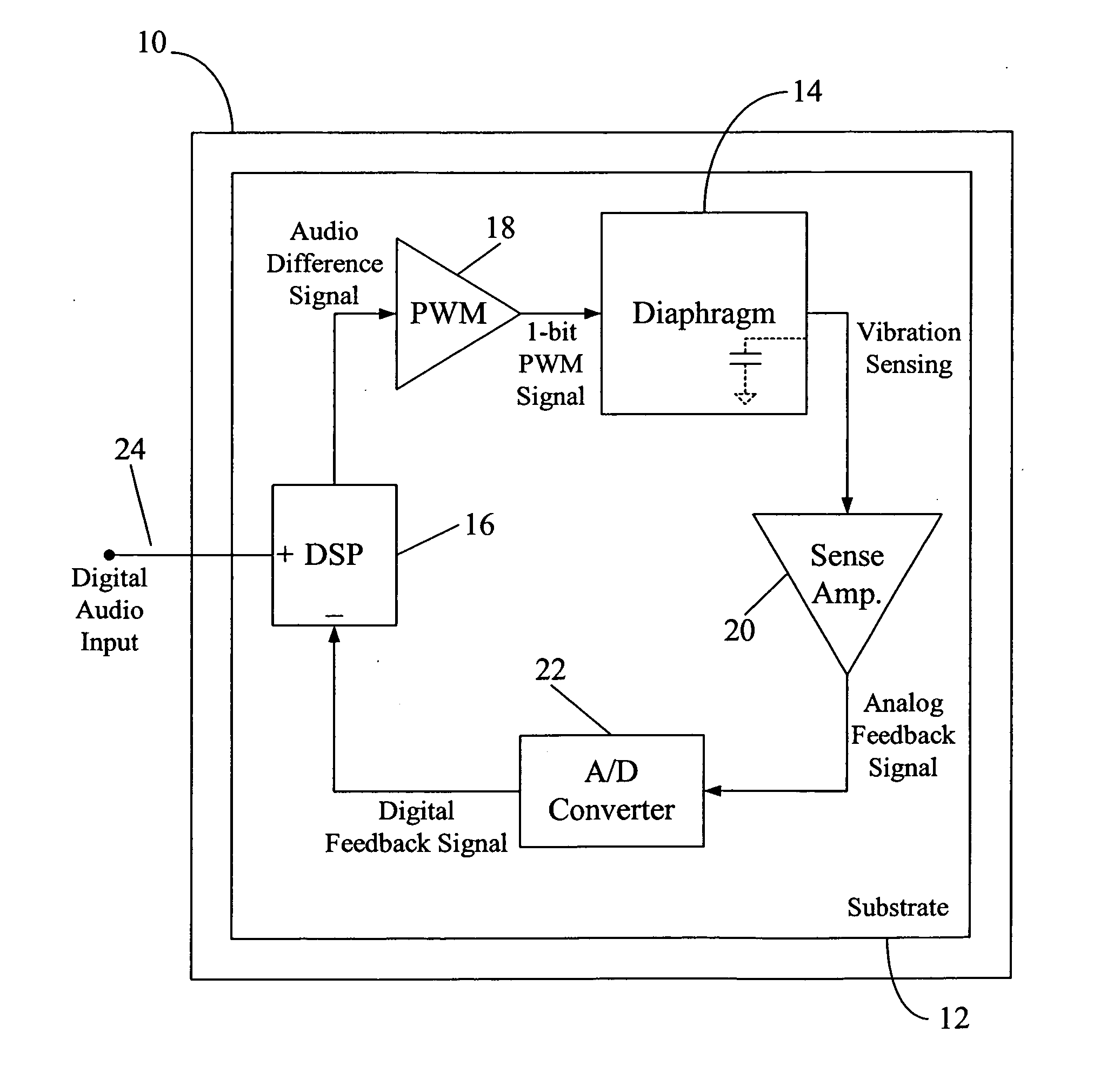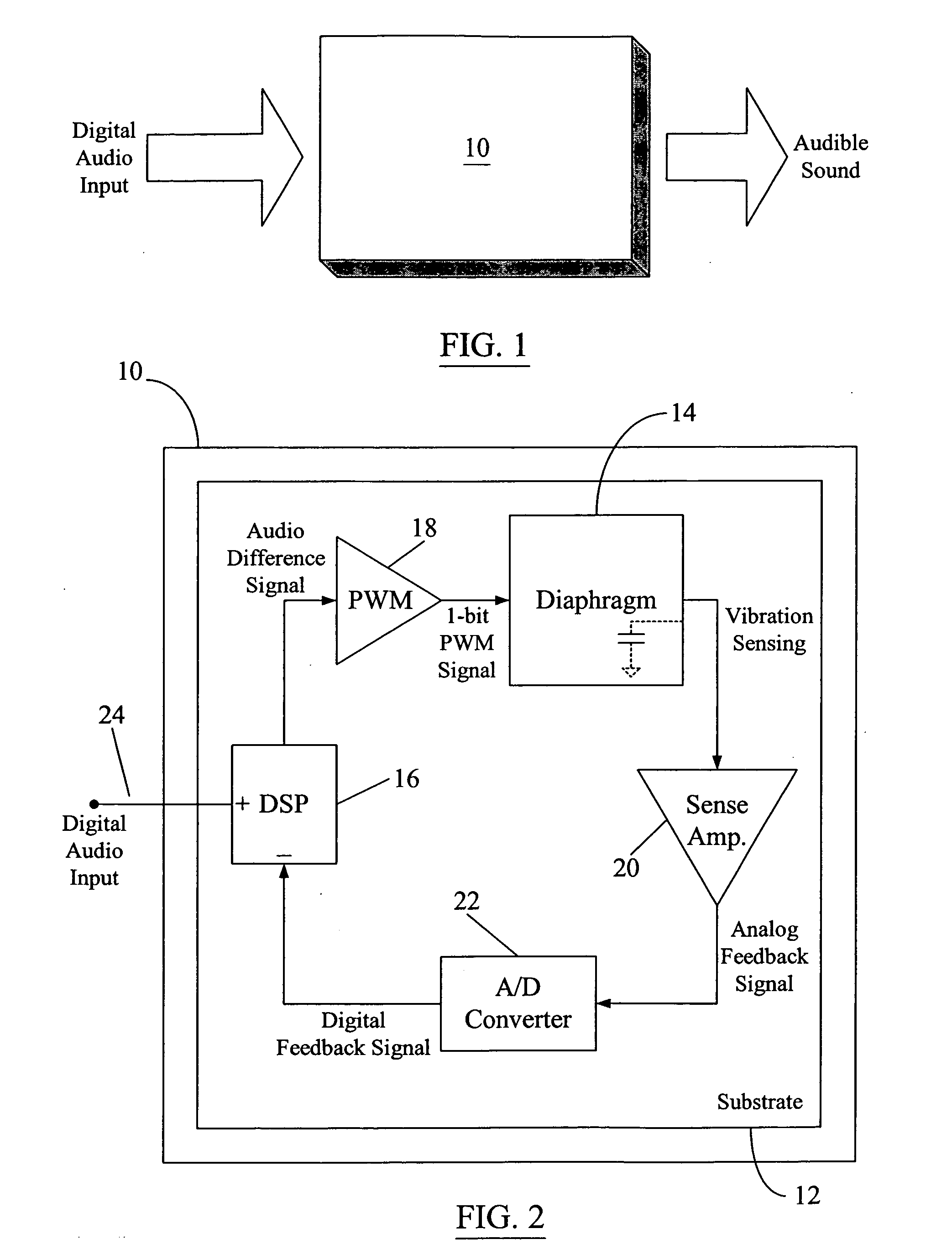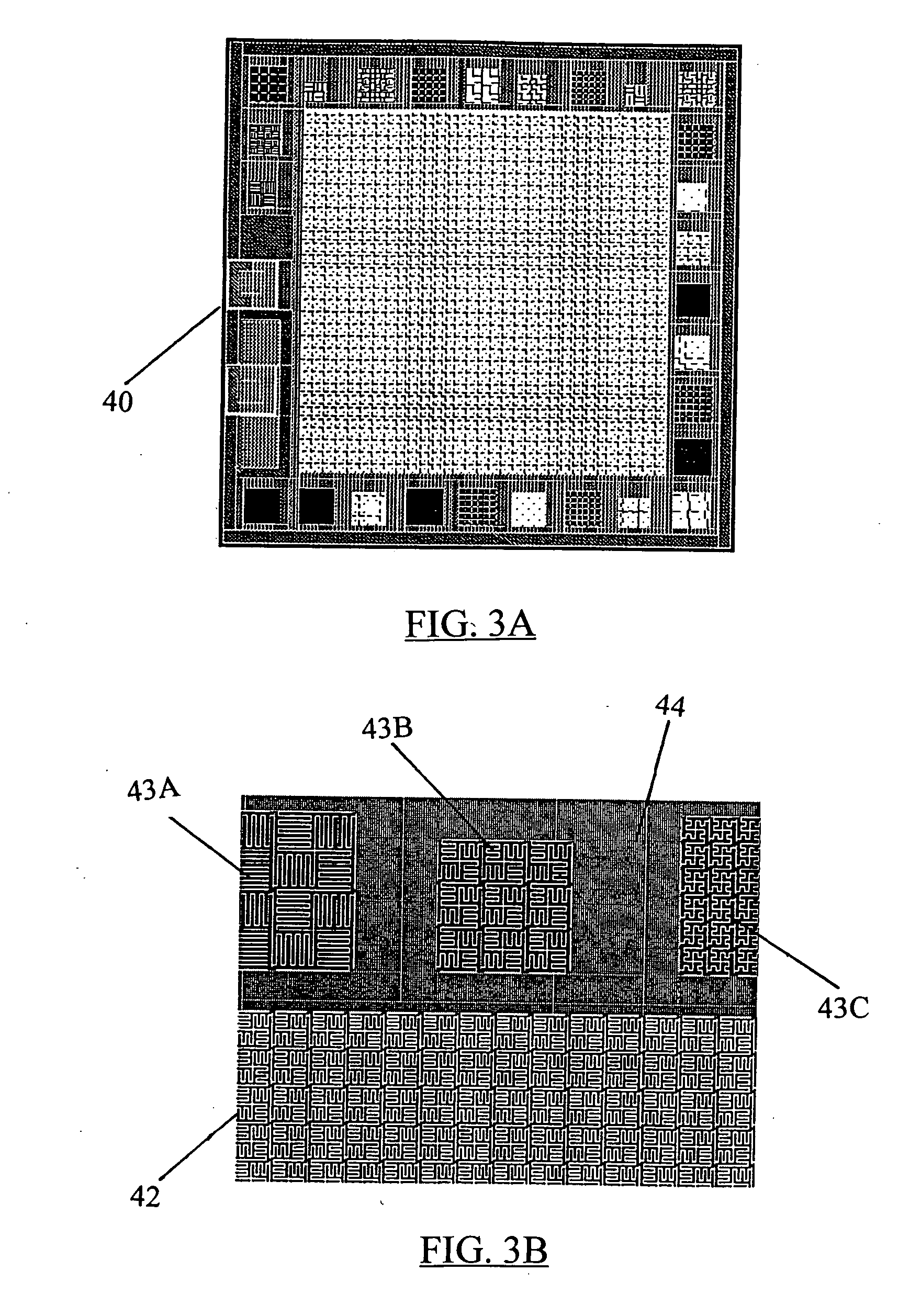MEMS digital-to-acoustic transducer with error cancellation
a digital-to-acoustic transducer and error cancellation technology, applied in the field of digital audio transducers, can solve the problems of inconsistent, cost and quality problems, limited performance of relevant electroacoustic transducers, and low cost benefit of manufacturing such audio transducers in high volume quantities, and achieves the effect of reducing production costs, reducing the size of acoustic transducers, and high quality audio reproduction
- Summary
- Abstract
- Description
- Claims
- Application Information
AI Technical Summary
Benefits of technology
Problems solved by technology
Method used
Image
Examples
Embodiment Construction
Referring now to FIG. 1, a housing 10 encapsulating circuit elements of an acoustic transducer according to the present invention is shown. In the embodiment of FIG. 1, the acoustic transducer included within the housing 10 is a microspeaker unit that converts the received digital audio input into audible sound. As discussed later, the microspeaker in the housing 10 generates audible sound directly from the digital audio input, which may be from any audio source, e.g., a compact disc player. In one embodiment, the microspeaker in the housing 10 is configured to receive analog audio input (instead of the digital input shown in FIG. 1) and to generate the audible sound from that analog input. In an alternative embodiment (not shown in FIG. 1), the housing 10 may encapsulate a microphone unit that receives sound waves and converts them into electrical signals. The output from the housing 10 in that case may be in analog or digital form as desired by the circuit designer.
Turning now ...
PUM
 Login to View More
Login to View More Abstract
Description
Claims
Application Information
 Login to View More
Login to View More - R&D
- Intellectual Property
- Life Sciences
- Materials
- Tech Scout
- Unparalleled Data Quality
- Higher Quality Content
- 60% Fewer Hallucinations
Browse by: Latest US Patents, China's latest patents, Technical Efficacy Thesaurus, Application Domain, Technology Topic, Popular Technical Reports.
© 2025 PatSnap. All rights reserved.Legal|Privacy policy|Modern Slavery Act Transparency Statement|Sitemap|About US| Contact US: help@patsnap.com



